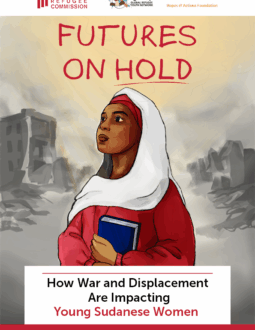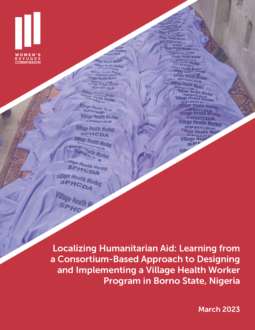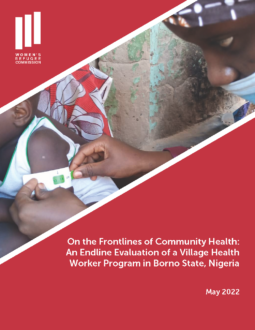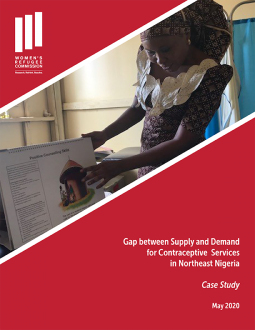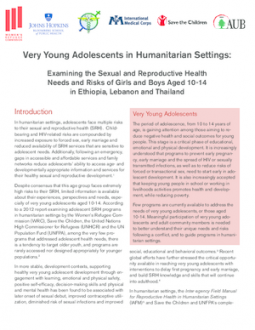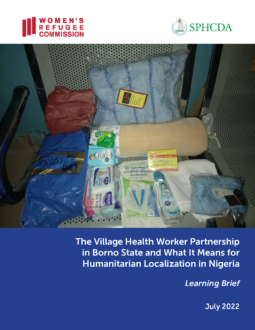
The Village Health Worker Partnership in Borno State and What It Means for Humanitarian Localization in Nigeria
PublishedTo work toward addressing the conflict-driven health crisis in Borno, while adopting a localized approach to strengthen public health systems within the State, in 2017, the Women’s Refugee Commission (WRC) developed the Reproductive, Maternal, Newborn, Child, Adolescent Health and Nutrition (RMNCAHN) Project, with its cornerstone component, the Village Health Worker (VHW) Program. The community-based VHW Program aimed to increase demand for RMNCAHN services, while complementary interventions strengthened government provision of health services, in order to improve RMNCAHN health outcomes.
The project also had a process-related goal: to use a localized approach to delivering the VHW program and systems strengthening package. The project positioned the Borno State Primary Health Care Development Agency (BSPHCDA) as the lead implementer, and brought together four partners in addition to WRC and BSPHCDA: Mwada-Gana Foundation; M-Space; i+solutions; and a long-term research consultant. To advance principles of equitable and effective partnership, WRC facilitated a partnership co-design process to collaboratively define how the consortium would function in practice. In 2021, WRC engaged an external evaluator to design and carry out an evaluation of the partnership. This report describes the project’s localization approach and its outcomes.


